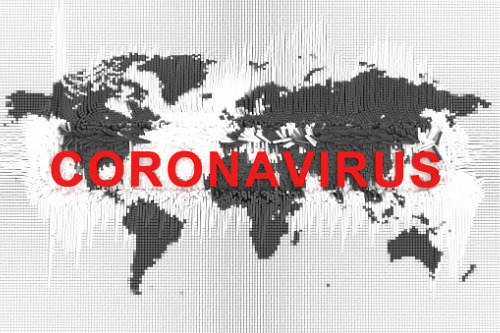

The global coronavirus pandemic is “not only one of the most significant credit events” in most of our lifetimes, it’s also “unquestionably the fastest developing,” according to Keith Buckley, managing director and global head of insurance ratings at Fitch Ratings. The global credit ratings agency, which provides insurance sector and company outlooks, is in the process of analysing the potential impact of COVID-19. But the speed at which events are unfolding and changing are creating what Buckley described as “tremendous uncertainty,” making forward-looking analysis an immense challenge.
Fitch’s non-rating action commentary on ‘Coronavirus Baseline and Downside Scenarios,’ published on April 02, defines common parameters against which all ratings groups globally are evaluating the impact of the COVID-19 pandemic. That includes a recession at a speeding depth unseen since World War Two, characterised by world GDP growth dropping by 1.9% in 2020, with the US, Eurozone and UK GDP down by 3.3%, 4.2% and 3.9%, respectively, as well as China’s GDP growth dropping to just about 2% versus recent levels closer to 6%. Other baseline and downside-scenario parameters include “a rapid and significant deterioration in the labour market,” volatile capital market conditions, and the price of oil to be range-bound within $25-30/bbl for much of 2020.
These elements manifest themselves in the insurance sector in several ways. Presenting a Fitch Ratings webinar entitled ‘Coronavirus Impact on Global Insurance,’ Buckley explained: “First, there’s going to be strain on the asset side of the balance sheet as investments suffer losses, and/or there’s just market value volatility. Second, there will be direct claim costs tied to the pandemic - and that could come from heightened health insurance claims to cover hospitalisations for people who are infected by COVID-19, or life insurance claims for death. It could also include claims on the non-life side for indirect losses such as from event cancellations, related to trade credit, some for business interruption, some for various liability exposures, among others.
“Also, interest rate levels will come into play, and here we’re seeing somewhat contrasting indicators, with government risk free rates on a downtrend, but spreads widening on corporate and other debt. Interest rate levels can not only impact earnings on new money invested, but they can impact reserving assumptions, especially on long duration products. Ironically, there could also be some theoretical benefits for insurance, such as reduced claim experience from slowed activity due to lockdown, such as driving or around life products where reduced longevity can help. An example here would be annuities that have annuitised and are paying a fixed periodic benefit for a policyholder’s remaining life.”
Given the significant pressure upon the underlying fundamentals of the global insurance industry as a result of the coronavirus pandemic, Fitch has moved all insurance sectors globally to a negative outlook. That includes life and non-life insurance globally, US health insurance, global reinsurance, and title insurance. However, the firm also has an indicator called the Rating Outlook for each sector, and here there is some differentiation (as of March 16) between the different insurance sectors. When establishing a rating outlook for a sector, Fitch tries to determine whether the underlying fundamentals are under enough pressure to also indicate that a notable portion of ratings may suffer a rating action. As such, the firm moved the global life sector and the US health sector to a negative rating outlook but kept a stable rating outlook for the non-life, global reinsurance and title insurance sectors.
“The life sector negative rating outlook is because life insurers have much higher asset leverage than other insurance sectors, and thus, asset shocks will be felt harder relative to capital. Life businesses also tend to be more sensitive to interest rates, plus we think some companies too will suffer in earnings hit from increased mortality,” said Buckley. “Our decision to move the US health insurance to a negative rating outlook was a more difficult one, and I must admit it’s one we went back and forth on a few times. To come to a decision, we did some scenario analysis to judge what level of infection rate would be needed to really hurt US health insurer earnings.
“Based on that analysis, the infection rate needs to be reasonably high. That said, the range of expert views on what the COVID-19 infection rate may ultimately be remains as wide as almost any indicator we’ve seen, with some experts predicting just a few percent of the global population in the populations in the major countries, and others suggesting it could be over 50%. In the end, we felt that such a wide range of outcomes was simply inconsistent with a stable rating outlook, so we decided to move to negative. But that is one where if the experts’ views tighten, we should be able to revisit the outlook and what makes sense given where it tightens to. But for now, based on what we know, we think negative is the right place for the US health insurers, even though we think the bigger companies that our ratings cover should prove pretty resilient.”
Fitch’s analysis mid-March, which Buckley stressed is subject to change given the fast-evolving nature of the coronavirus situation, was that the non-life and reinsurance sectors globally should have enough capital to absorb asset losses, especially given the lower asset leverage for most non-life companies relative to their life counterparts. The firm also projected that claim costs resulting from COVID-19 will be more of an earnings event versus a capital event for a vast majority of companies.
